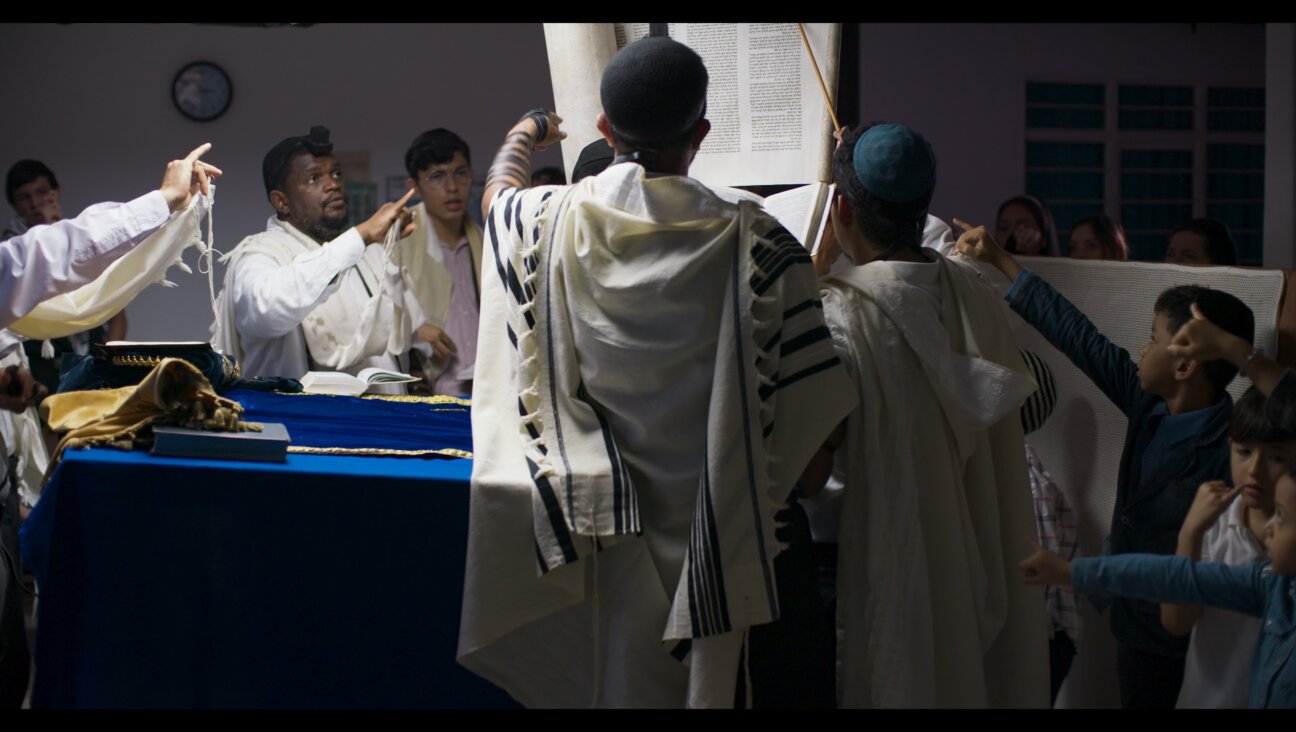Holocaust Museum, Turning 20 Years Old, Confronts 21st Century Challenges

Image by wikicommons

A Solemn Commemoration: Earlier this year, former President Bill Clinton spoke at the 20th anniversary of the U.S. Holocaust Memorial Museum Image by Getty Images
When the United States Holocaust Memorial Museum’s 20th Anniversary National Tour comes to Chicago in June, Suzy Snyder, the museum’s associate curator, hopes that survivors and their children in the Windy City will consider donating their Holocaust artifacts and documents.
“We want people to understand that we don’t have enough. There’s no such thing as enough. The museum constantly collects, because every story illustrates somebody’s history,” Snyder said. “We want to be the most comprehensive collection that we can be.”
In the past year, the national tour has visited Boca Raton, Fla.; Los Angeles; New York and Washington, D.C. — where the museum is based — and at each venue, the museum has received dozens of collections. In New York, for example, a woman donated what Snyder described as “very unusual” uniforms that belonged to her relatives, who were Schindlerjuden. “We do not get uniforms that often,” Snyder said.
In California, a man donated negative film from his father, an American soldier who saw the liberation of a trainload of people. Another person donated a doll whose head had been removed so that the body could be stuffed with valuables to smuggle out of Nazi occupation.
The context surrounding those artifacts is changing, however, and unfortunately it will soon be the case that there will be Holocaust-era artifacts without any living survivors.
“The biggest challenge that we will see in the next 20 years is that we will have collections and we will not have survivors to interpret them or understand them,” Snyder said. “It’s not that we won’t be able to interpret them, but it’s always better when you are dealing with the generation that used the artifacts.”
The museum’s director, Sara Bloomfield, echoes Snyder’s estimation of its greatest obstacle looming on the horizon.
“Obviously, most institutions would really have a big celebration or commemoration for their 25th rather than their 20th, but this happens to come at a turning point for our institution, and we know that the survivors and other eye witnesses are diminishing,” Bloomfield said. “In many ways, we are losing our most powerful teachers and that authentic link to the past, and before we lose that, we wanted to not only honor them in these cities around the country, but also honor them in the kind of moment of intergenerational… transfer, celebration and commitment to the future.
“We’re going to carry the story forward and continue to teach the lessons of the Holocaust in perpetuity — that’s our goal. One of our missions is the permanence of Holocaust memory, understanding and relevance. Our 20th anniversary comes at a very unique moment for us to assert that in a very strong way.”
The museum’s first two decades were about establishing itself on the National Mall in Washington and reaching all 50 states through traveling exhibits, teacher training and other kinds of outreach, according to Bloomfield. The next 20 years, she says, will be about positioning the museum, whose website has now been translated into 14 languages, as a global institution.
“With rising Holocaust denial and the anti-Semitism and just lack of awareness in so many parts of the world, I think we are uniquely positioned to do that and to address a very serious problem that I think will only get worse once we lose the eyewitness-generation,” Bloomfield said.
Menachem Wecker is a Chicago-based writer on art and religion. Find out more about him at http://menachemwecker.com or on Twitter, @mwecker
A message from our Publisher & CEO Rachel Fishman Feddersen

I hope you appreciated this article. Before you go, I’d like to ask you to please support the Forward’s award-winning, nonprofit journalism so that we can be prepared for whatever news 2025 brings.
At a time when other newsrooms are closing or cutting back, the Forward has removed its paywall and invested additional resources to report on the ground from Israel and around the U.S. on the impact of the war, rising antisemitism and polarized discourse.
Readers like you make it all possible. Support our work by becoming a Forward Member and connect with our journalism and your community.
— Rachel Fishman Feddersen, Publisher and CEO






















